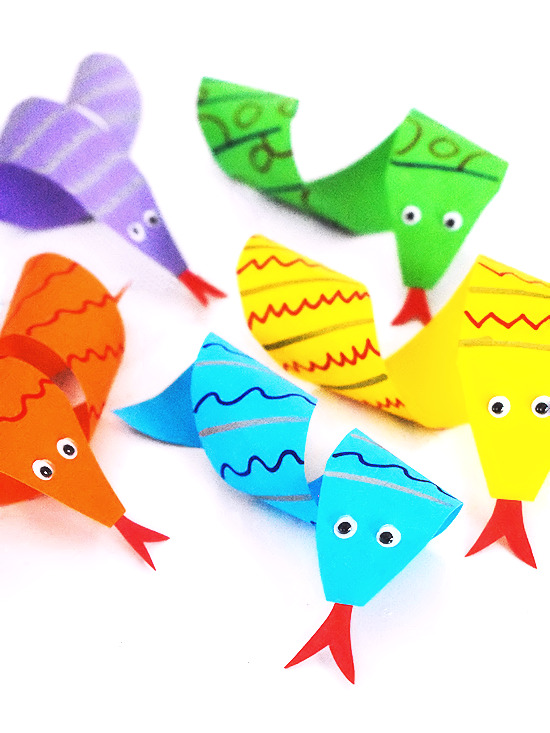
A craft room should be designed to convey a specific ambiance if you want to create a space to work on crafting. You need to consider several factors, including vertical space. Vertical space can maximize creativity and productivity. The following tips will help you design a craftroom:
For a unique atmosphere, decorate your craft room
If you are creative, your craft room can be used to express yourself. A well-planned workspace is vital, but it's also important to give your space the right aesthetic touches. A craft room with plenty of natural light and built-in storage is ideal for facilitating creative activities. It's also important to provide a relaxing and inviting space. If you want to make your room look more luxurious, you can either install a large light fixture or add a striking rug. You can mix and match different textures and colors to create the right atmosphere.

There are many options for creating a craft area that is cozy and feminine or more industrial. Art Deco will give your workspace a timeless, elegant look. Art Deco is great if you're a crafter as it relies on bold imagery. You can incorporate antiques, patterned boxes, and folders into your craft room while still making it stylish.
For maximum inspiration and productivity, include certain elements
You should make a plan before designing your craft room. It is helpful to plan the rooms you use most often. It will help you organize your work space more efficiently. In addition, you'll want the crafting area to be close to a window or artificial light. It is important to take many things into account when designing a craft corner.
Designing a craft area is important. Make sure you consider the storage space. A storage cart can help you achieve both ends of the spectrum. These carts are easy to move from one room to the next. Look for a storage cart that can be used for crafting supplies. It should also have tiers for organization. It is a good idea to choose shelving with labeled shelves to organize your space.
Make use of vertical space
Vertical space is crucial when designing a craft space. To display your items, make sure you use clear cabinets with glass inserts and open shelving. Opaque cabinets can make the space look more appealing and more organized. You can also use a pegboard or slat wall to organize craft supplies. You can also consider installing a rolling cart to keep all your supplies in easy reach. Be sure to allow for parking space. To store your materials, you can also use file drawers.

If you're not using your craft room as a workspace, consider hanging hooks, shelves, or cabinets to provide more space and access to materials. You can also use a magnetic board to organize your crafting supplies. Be sure to label all craft supplies that you place on these walls. This will ensure that no items end up on the floor. Another idea is to use the wall space for doodles or other creative ideas.
FAQ
What are competitive hobbies?
You can compete in running, swimming or cycling as well golfing or tennis.
They're usually played by people who enjoy physical activity but also provide an opportunity for social interaction.
If your hobby is physical activity, chances are that others share it.
This may mean joining a club or group where you meet regularly to play sports together.
You might also choose to participate in team games involving playing alongside others.
These include netball (soccer), football (cricket), netball (basketball), hockey, baseball, volleyball and badminton.
There are many types and levels of competition.
Some competitions may be held for pure recreational purposes.
Others are used to assess competitors' abilities.
And still, others are designed to reward outstanding performance.
The winners are awarded prizes in these cases.
Other competitions test strength and endurance.
These are known endurance events.
For example, marathon races, triathlons, Ironman Triathlon, etc.
Before competing in these events, athletes train hard.
They will follow a strict training program to prepare themselves mentally and physically.
They might also have to travel for preparation.
It is important to keep in mind that not all athletes can compete in every event.
Why do we need hobbies
Hobbies are a vital part of our lives as they allow us to unwind, relax, think creatively and exercise. They also give us the opportunity to socialize, network, and have fun. They also provide us with opportunities for learning new skills and developing valuable life-long interests.
Hobbies give us meaning and purpose in life.
These can often be a great way to get some extra time while you have nothing else.
They're also fun!
If you don’t have the time to do a hobby, you likely don’t have any other hobbies.
So take a look at all the options available to you. You might consider starting a hobby if you don't already have one.
What are educational hobbies, you ask?
An educational hobby involves a sport or other activity where you can learn something from doing it. It could be anything, from playing sports to learning how an instrument is played.
It should be enjoyable and have fun. While you don't need to do it every day, if bored you might consider other activities.
These activities could end up costing you far more than what you pay for.
How do I get started?
The first step toward starting any new hobby is to decide what kind of activity you'd like to pursue.
Passion is essential once you have selected your subject.
It's important to understand why you want to start a particular hobby. It will provide you with direction and purpose.
Once you've decided what type of hobby you'd like to pursue, you can begin planning.
You should think about the equipment you'll need.
Consider whether you are required to attend classes and seminars.
Ensure that you have enough space for your hobby.
You may also consider joining a club or group. These groups offer support and advice.
Think about how much you'd need to spend on your hobby.
What are observation hobbies exactly?
Observation hobbies can be activities that you watch people do. This could be watching sports, reading books or going on holiday. It could also be observing other people as well.
Because they teach you how to think creatively, observation hobbies are great. You can draw on this knowledge later, when you work on projects for others.
You'll discover that it's easier to learn if there's a passion for something.
For example, if you want to know more about football, you may watch a game or read a book about it. Visit or take photographs to learn more about the art of photography.
You can play along with songs online or purchase a guitar if you love music.
You can cook your own meals, or you could go to a restaurant.
You could also grow flowers or vegetables if you enjoy gardening.
If dancing is something you enjoy, join a dance class.
You could also paint pictures if you are a fan of painting.
If you like writing, you could write stories or poems.
You might enjoy drawing pictures, if you are a good artist.
If you are passionate about animals, you can look after them or work at the zoo.
If you enjoy science, you might consider studying biology, chemistry and physics.
If you like history, you could read books, watch films or listen to podcasts.
You can travel abroad or explore your home area if you love to travel.
Statistics
- 37% Video Games 36% Travel 36% Health and Fitness (quizexpo.com)
- This 100% accurate personality-analyzing hobby quiz discovers your passion based on your characteristics. (quizexpo.com)
- In comparison, men in the “no humor” condition were refused 84.6% of the time and were only accepted 15.4% of the time. (time.com)
- Much of this decline reflects the fact that teens are less likely to work today than in the past; among employed teens, the amount of time spent working is not much different now than it was around 2005. (pewresearch.org)
- The intensity of the dialogue partners' bond at the end of the forty-five-minute vulnerability interaction was rated as closer than the closest relationship in the lives of 30 percent of similar students. (time.com)
External Links
How To
How to learn a musical instrument
If you want to learn how to play music, there are many ways to do so. You have the option of going to school, buying a book or taking lessons from someone who plays an instrument. Or, you can watch videos online. However, if you decide to find your own way to learn, here are some tips and tricks that might help you out.
-
Find something that interests your interest. You don't have to like every instrument you see. It would be hard to get into playing an instrument if you don't enjoy doing it.
-
Be patient. It takes time to learn something new. You don't have to learn everything in one go. Keep practicing each day.
-
You should practice often. You can do this even when it is hard. This will ensure that your memory doesn't fade.
-
Make sure you choose a safe place to practice. It is best to find a quiet space where you will not disturb others. Also, make sure that there aren't too many distractions. It is best to avoid listening to loud music nearby.
-
Have fun. Music should be enjoyed. You should have fun practicing music. It will make you more motivated to keep going.
-
Set goals. When you set goals, you know exactly what you have to achieve. This will make it impossible to fail.
-
Keep track and keep track of your progress. Keep track of all your successes and failures. Doing so will help you improve over time.
-
Pause. Sometimes it is enough to just stop and think. You will be able to take breaks and think about the things you are doing.
-
Ask questions. Ask others if there are any doubts or questions regarding the instrument. They may be able to help you out.
-
Listening is the best way of learning. Many musicians enjoy listening to their favorite songs and trying to imitate them. This helps them understand the basic concepts behind the song.
-
Read books. Reading books will teach you more than watching videos or taking classes. You will also find information in books that you won't find anywhere else.
-
Join a band. You'll be more motivated to practice when you are playing with others. Plus, you will meet people who share similar interests as yours.
-
View tutorials. Tutorials are short videos that give detailed information on a topic. These tutorials usually concentrate on one particular aspect of an instrument. Tutorials can be helpful in understanding difficult parts of an instrument.
-
Try different methods. Some people prefer to learn through lectures, whereas others learn better by reading. You can experiment until you discover what works for you.
-
Practice makes perfect. There is no way to be an expert overnight. It takes a lot of work to be able to perform well.
-
Learn from other musicians. Listening to others play your favorite songs can help speed up learning.